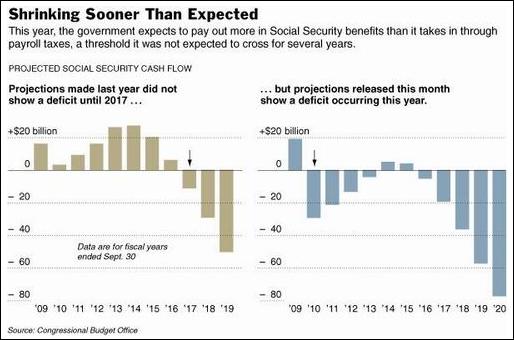
|
|

|
|
| April 25, 2024 |
|
Social Security drops into the 'red' 
The bursting of the real estate bubble and the ensuing recession have hurt jobs, home prices and now Social Security. This year, the system will pay out more in benefits than it receives in payroll taxes, an important threshold it was not expected to cross until at least 2016, according to the Congressional Budget Office. Stephen C. Goss, chief actuary of the Social Security Administration, said that while the Congressional projection would probably be borne out, the change would have no effect on benefits in 2010 and retirees would keep receiving their checks as usual. The problem, he said, is that payments have risen more than expected during the downturn, because jobs disappeared and people applied for benefits sooner than they had planned. At the same time, the program’s revenue has fallen sharply, because there are fewer paychecks to tax. Analysts have long tried to predict the year when Social Security would pay out more than it took in because they view it as a tipping point, the first step of a long, slow march to insolvency, unless Congress strengthens the program’s finances. “When the level of the trust fund gets to zero, you have to cut benefits,” Alan Greenspan, architect of the plan to rescue the Social Security program the last time it got into trouble, in the early 1980s, said on Wednesday. That episode was more dire because the fund could have fallen to zero in a matter of months. But partly because of steps taken in those years, and partly because of many years of robust economic growth, the latest projections show the program will not exhaust its funds until about 2037. (Source: New York Times) Story Date: March 26, 2010
|